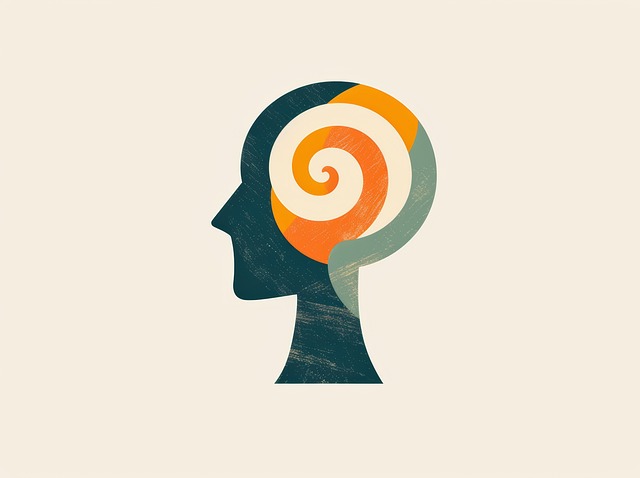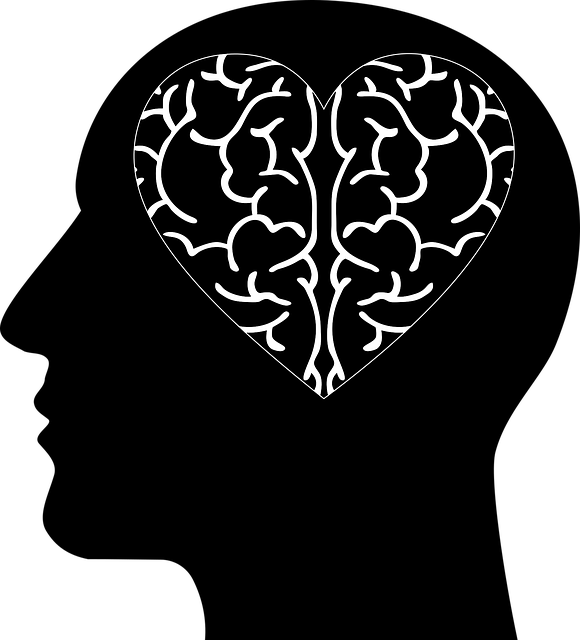Cultural competency is crucial in modern healthcare, ensuring effective mental health services for all patients, especially marginalized communities. By understanding and adapting treatments based on diverse cultural beliefs, healthcare professionals can build trust and improve outcomes, as seen with PTSD therapy. Unaddressed cultural biases lead to disparities in treatment and access, affecting patients from various backgrounds. Training providers in cultural competency is essential to recognize and mitigate these biases, providing respectful care tailored to individual needs. Golden Post-Traumatic Stress Disorder (PTSD) Therapy requires cultural sensitivity to adapt practices for diverse contexts, enhancing mood management and risk planning while adhering to ethical standards. Implementing comprehensive cultural competency training programs, including specialized PTSD therapies, is a game-changer for enhancing care quality and fostering inclusive environments in healthcare.
“In today’s diverse healthcare landscape, cultural competency training for providers is no longer an option—it’s essential. This article explores the critical need for such training, focusing on improving patient care and addressing implicit biases. We delve into the unique challenges of Golden Post-Traumatic Stress Disorder (PTSD) therapy, highlighting the importance of cultural sensitivity in treatment. Additionally, effective training program implementation strategies are presented to enhance healthcare delivery and foster more inclusive practices.”
- Understanding Cultural Competency in Healthcare: A Necessary Approach
- The Impact of Unaddressed Cultural Biases on Patient Care
- Golden Post-Traumatic Stress Disorder (PTSD) Therapy: A Case for Cultural Sensitivity
- Implementing Effective Training Programs: Enhancing Healthcare Delivery
Understanding Cultural Competency in Healthcare: A Necessary Approach

In the realm of healthcare, cultural competency is no longer a nice-to-have but an indispensable requirement. It involves understanding and respecting diverse cultural beliefs, practices, and values to deliver effective care tailored to each patient’s unique needs. This approach ensures that mental health professionals can interact sensitively with individuals from various backgrounds, fostering trust and improving treatment outcomes, especially for marginalized communities. For instance, when addressing post-traumatic stress disorder (PTSD), a condition prevalent among many populations, cultural sensitivity is key. The golden standard in PTSD therapy involves recognizing and adapting to cultural contexts, ensuring that treatments are accessible and effective for all.
Beyond individual patient interactions, cultural competency training empowers healthcare providers with the skills to navigate complex social issues. This includes assessing risk factors related to mental health, such as those faced by refugees or individuals from different ethnic groups, who may encounter unique barriers to accessing care. By integrating positive thinking and emotional healing processes into their practice, professionals can contribute to a more inclusive healthcare environment, where everyone receives the support they need to thrive, regardless of cultural background.
The Impact of Unaddressed Cultural Biases on Patient Care

Unaddressed cultural biases within healthcare systems can significantly impact patient care, leading to disparities in treatment outcomes and access to quality services. These biases, often rooted in unconscious preconceptions, affect how patients from diverse backgrounds are perceived, diagnosed, and treated. For example, a study might reveal that certain racial or ethnic groups face delays in receiving mental health services due to cultural misunderstandings. This is particularly relevant when considering conditions like Post-Traumatic Stress Disorder (PTSD), where the manifestation of symptoms can vary across cultures, potentially leading to misdiagnosis or inadequate treatment plans.
In light of these challenges, training healthcare providers in cultural competency is paramount. It equips them with the skills to recognize and mitigate biases, ensuring that every patient receives respectful, culturally sensitive care. This is especially crucial when dealing with complex mental health issues, as a provider’s understanding of a patient’s cultural context can significantly enhance therapeutic outcomes. Incorporating techniques from Golden Post-Traumatic Stress Disorder Therapy or promoting Self-Care Routine Development for Better Mental Health and Coping Skills Development within this training can empower healthcare professionals to deliver holistic, effective care tailored to each individual’s unique needs.
Golden Post-Traumatic Stress Disorder (PTSD) Therapy: A Case for Cultural Sensitivity

Golden Post-Traumatic Stress Disorder (PTSD) Therapy is a specialized approach that requires immense cultural sensitivity, especially when treating individuals from diverse backgrounds. PTSD can manifest differently across cultures due to varying societal norms, coping mechanisms, and expressions of trauma. For instance, some communities may emphasize collective healing over individual therapy, or have unique rituals for processing grief and trauma. Mental health professionals must be adept at adapting their practices to respect these cultural nuances and create a safe, supportive environment.
Integrating cultural competency into Golden PTSD Therapy involves not only understanding but also incorporating the patient’s cultural context into treatment planning. This may include integrating traditional healing practices, respecting family dynamics and roles, and tailoring self-care strategies to align with personal and community beliefs. By doing so, mental health professionals can enhance mood management, promote effective risk management planning, and foster better outcomes for clients struggling with PTSD, while also upholding ethical standards in the delivery of care.
Implementing Effective Training Programs: Enhancing Healthcare Delivery

Implementing effective cultural competency training programs is a game-changer in healthcare delivery. By equipping providers with the knowledge and skills to understand diverse patient populations, we can significantly enhance the quality of care. This is especially crucial in addressing mental health concerns, such as Post-Traumatic Stress Disorder (PTSD), which often requires specialized therapy like Golden PTSD Therapy to manage symptoms effectively. Training should focus on promoting mental wellness and preventing burnout among healthcare workers, ensuring they are equipped to support patients’ emotional well-being alongside their physical health.
Cultural competency goes beyond awareness; it empowers providers to create inclusive environments. This can lead to better patient engagement and satisfaction, positive mood management, and improved outcomes. By fostering an understanding of cultural differences, healthcare professionals can avoid potential pitfalls like unconscious biases, ensuring every patient receives personalized care tailored to their unique background and needs.
Healthcare provider cultural competency training is no longer a choice but an imperative. By addressing unaddressed cultural biases, we can significantly improve patient care and outcomes, especially for vulnerable populations such as those suffering from Golden Post-Traumatic Stress Disorder (PTSD). Implementing effective training programs ensures healthcare delivery that is inclusive, empathetic, and evidence-based, fostering better patient-provider relationships and enhancing the overall quality of care.














